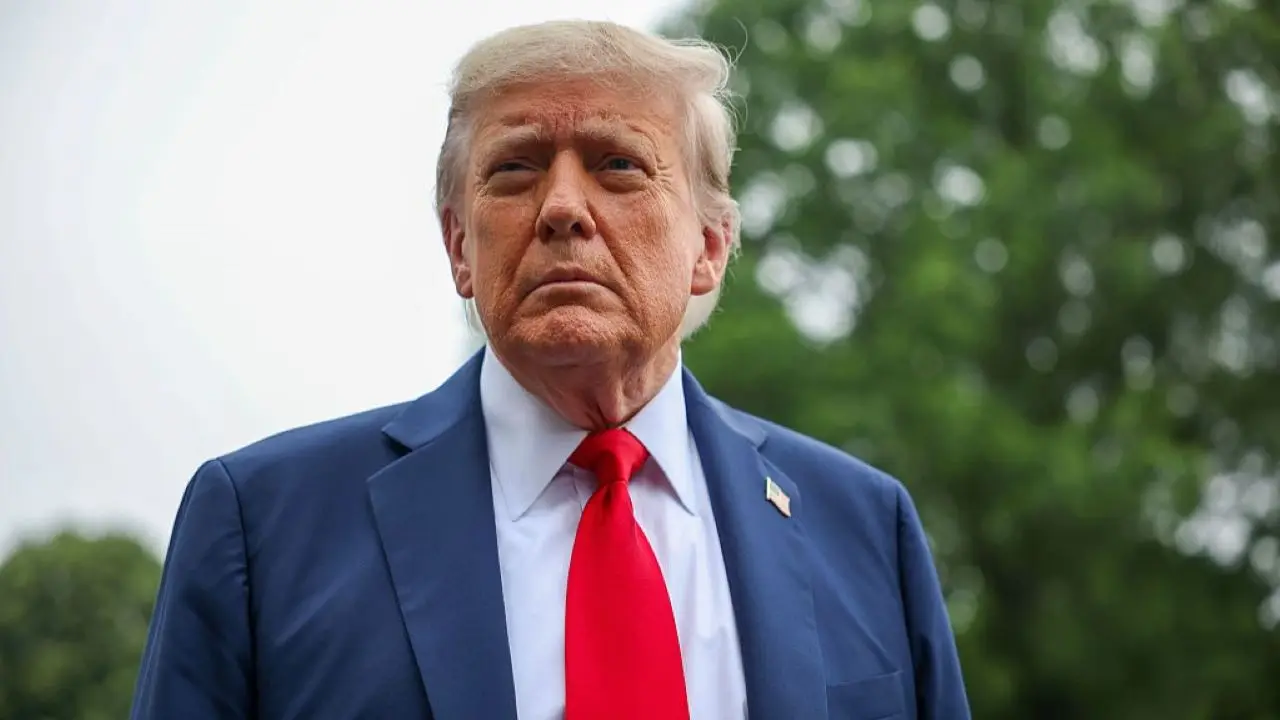Crypto
4 principles to remember before you include cryptocurrency in your retirement investments

Bitcoin, Litecoin and many other name brand cryptocurrencies can be bought through specialty brokers like Coinbase or Robinhood. Famous athletes and actors often tout digital currency and draw us into the exciting concept. You can buy, sell or spend cryptocurrency, often called simply crypto.
But what are cryptocurrencies? They are a kind of money that exists only in electronic form. Cryptocurrency accounts are not insured by the Federal Deposit Insurance Corporation and the digital money itself is neither issued by nor backed by the Federal Reserve (or any other central bank).
And, unlike the U.S. dollar, which has a relatively stable value, the market for cryptocurrency has been remarkably volatile. According to Coin Desk, a crypto trading platform, the price of one bitcoin
BTCUSD,
peaked at $64,972.24 on Nov. 10, 2021, and traded for $26,107.57 — 60% less — on Aug. 20, 2023.
Think before buying
Investment laws do regulate the sale of crypto. And the federal government is trying to educate investors and savers on the pitfalls and scams associated with this investment.
You may be confident and have figured out mining, where to buy crypto and which one you are going to buy, but you are not ready to make this purchase. Before you spend your hard-earned cash on any cryptocurrency, you should consider how it will fit in with your investment strategy, estate planning, risk tolerance and income taxes.
Read: Does your public pension fund hold risky crypto-related investments? It can take a fight to find out.
Here are four important financial planning concepts and how you need to look at them in light of a crypto investment:
1. Investment strategy
Does a crypto purchase fit with your investment strategy? Many people jumped on board as a “sure bet” heard on the street and made the purchase online. The investment becomes a personal and emotional decision. Yet, there are investment reasons to pause and rethink.
Consult with a pro
If you have always been a conservative investor, adding crypto to your portfolio is very risky. Consider your risk tolerance. Whether a crypto or Robinhood or other discount broker account, knowing how it fits into your overall plan can be the difference between a rational decision and a reactionary one on the day your currency declines.
Yet, if you do have an investment adviser, make them aware of your purchase, as they can only do their job well with all your information. With this addition to your portfolio, they may ask you to adapt your profile or make the assets under their management safer to offset the added risk you are taking on.
Read: Bitcoin is expected to bottom in October. Here’s why
2. Estate planning
Does crypto fit with your estate plan, practically and legally? Many people invest in crypto and have accounts with passwords but never provide the details to their family or loved ones. Lacking this information, the asset could be lost to the digital world no matter how much it is worth. Be practical. Share the details to protect this asset from your disability or death.
Complicates estate planning
Legally, if your lawyer has created a trust for you and everything you own is in the trust, then a crypto account may wreak havoc when it comes time to settle the estate. When you set up your account online, the system is easy, smooth, and quick, but it is not personalized. No prompt asks if you have a trust or a specific designation to align with your estate plan, which may cost time and money in probate.
Plus, if your legal documents do not grant authority to your executor to handle your digital assets, your heirs could be facing an unnecessary hassle with the crypto provider.
Also see: If Robinhood disrupts the retirement business, it won’t be because of meme stocks and crypto, but stodgy long-term investment strategies
3. Risk tolerance
Are you really prepared to watch this investment go up and down? Making money is fun. And earns bragging rights. Crypto can be a fun diversion but consider the rest of the factors in your financial life. Cash in the bank may not earn much but it has FDIC backing.
Even your investments in brokerage firms are guaranteed up to limits. Securities Investor Protection Corporation insurance covers you if the company, not your investment, goes under. There is no such assurance from Coinbase
COIN,
Gemini or other cybercurrencies.
Using cash to buy crypto is shortsighted if your safety account is not strong. First things first. Consider cryptocurrency within the whole picture of your financial life to know what suits your goals and cash flow.
From the archives: (Nov. 2022) You need to understand the FTX debacle even if you have no investments in crypto
4. Tax policy
Are you following the tax rules? Whether it is cryptocurrency or stocks under your control, when you sell, keep cash available for taxes. If you have done any selling of crypto the past few years, your CPA may have asked you this question, which now appears on the 1040 form itself. Starting in 2023, crypto retailers will be required to issue 1099 tax forms telling you and the IRS how much you made or lost on cryptocurrencies. Keeping records and planning for taxes are essential.
Plus: FTX sues Sam Bankman-Fried’s parents over missing millions
As an experienced investor, taxes should come as no surprise. However, bear in mind you need to have cash available for upcoming taxes otherwise you could cause undue havoc on your cash flow. The company who sold and bought your currency has no responsibility to remind you to put aside cash. You do not want to have to sell crypto to pay the taxes thereby creating a cycle of more sales and more taxes.
Crypto can be a great investment for the right people. It will serve you best if you go in with your eyes open and remember that the above details matter.
Christine D. Moriarty CFP, is a Vermont-based financial speaker, writer and coach. She can be found at MoneyPeace.com.
This article is reprinted by permission from NextAvenue.org, ©2023 Twin Cities Public Television, Inc. All rights reserved.
More from Next Avenue:

Crypto
Bitget Launchpool to List DeLorean (DMC), Offering 66 Million Tokens in Rewards – Branded Spotlight Bitcoin News

Crypto
CoinMarketCap briefly hacked to drain crypto wallets via fake Web3 popup

CoinMarketCap, the popular cryptocurrency price tracking site, suffered a website supply chain attack that exposed site visitors to a wallet drainer campaign to steal visitors’ crypto.
On Friday evening, January 20, CoinMarketCap visitors began seeing Web3 popups asking them to connect their wallets to the site. However, when visitors connected their wallets, a malicious script drained cryptocurrency from them.
The company later confirmed threat actors utilized a vulnerability in the site’s homepage “doodle” image to inject malicious JavaScript into the site.
“On June 20, 2025, our security team identified a vulnerability related to a doodle image displayed on our homepage. This doodle image contained a link that triggered malicious code through an API call, resulting in an unexpected popup for some users when visited our homepage,” reads a statement posted on X.
“Upon discovery, We acted immediately to remove the problematic content, identified the root cause, and comprehensive measures have been implemented to isolate and mitigate the issue.”
“We can confirm all systems are now fully operational, and CoinMarketCap is safe and secure for all users.”
Cybersecurity firm c/side explained that the attack worked by the threat actors somehow modifying the API used by the site to retrieve a doodle image to display on the homepage. This tampered JSON payload now included a malicious script tag that injected a wallet drainer script into CoinMarketCap from an external site named “static.cdnkit[.]io”.
When someone visited the page, the script would execute and display a fake wallet connect popup showing CoinMarketCap branding and mimicking a legitimate Web3 transaction request. However, this script was actually a wallet drainer designed to steal connected wallets’ assets.
“This was a supply chain attack, meaning the breach didn’ target CMC’s own servers but a third-party tool or resource used by CMC,” explains c/side.
“Such attacks are hard to detect because they exploit trusted elements of a platform.”
More details about the attack came later from a threat actor known as Rey, who said that the attackers behind the CoinMarketCap supply chain attack shared a screenshot of the drainer panel on a Telegram channel.
This panel indicated that $43,266 was stolen from 110 victims as part of this supply chain attack, with the threat actors speaking in French on the Telegram channel.

Source: Rey
As the popularity of cryptocurrency has boomed, so has the threat from wallet drainers, which are commonly used in attacks.
Unlike traditional phishing, these types of attacks are more often promoted through social media posts, advertisements, spoofed sites, and malicious browser extensions that include malicious wallet-draining scripts.
Reports indicate that wallet drainers stole almost $500 million in 2024 through attacks targeting more than 300,000 wallet addresses.
The problem has become so pervasive that Mozilla recently introduced a new system to detect wallet drainers in browser add-ons uploaded to the Firefox Add-on repository.

Patching used to mean complex scripts, long hours, and endless fire drills. Not anymore.
In this new guide, Tines breaks down how modern IT orgs are leveling up with automation. Patch faster, reduce overhead, and focus on strategic work — no complex scripts required.
Crypto
Meta Earth Network 2.0: Pioneering Web3 Innovation With Rewards and Global Events – Press release Bitcoin News

-

 Arizona5 days ago
Arizona5 days agoSuspect in Arizona Rangers' death killed by Missouri troopers
-

 News1 week ago
News1 week agoAt Least 4 Dead and 4 Missing in West Virginia Flash Flooding
-

 News1 week ago
News1 week agoOakland County sheriff urging vigilance after shootings of 2 Minnesota lawmakers
-

 Culture1 week ago
Culture1 week agoBook Review: “The Möbius Book, by Catherine Lacey
-

 Technology1 week ago
Technology1 week agoTanks, guns and face-painting
-

 News1 week ago
News1 week agoVideo: Trump's Military Parade Met With Nationwide Protests
-

 World1 week ago
World1 week agoAt least 100 people killed in gunmen attack in Nigeria: Rights group
-

 Mississippi1 week ago
Mississippi1 week agoMiss Mississippi 2025: Who won in the third night of preliminary rounds? Find out here















